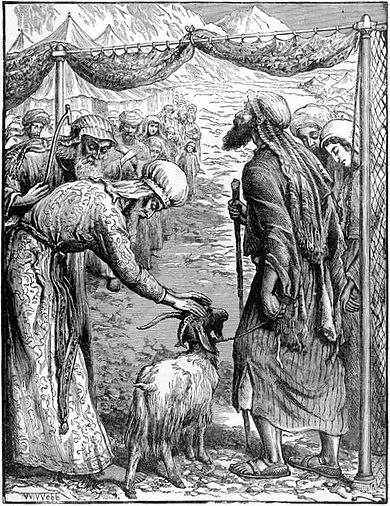Parashat Aharei Mot is the 29th weekly Torah portion in the annual Jewish cycle of readings, and it is also read on the holiest day of the Jewish year, Yom Kippur. The parasha is comprised of two main sections, one focusing on the death of Aaron’s sons, Nadav and Avihu, and the other detailing the Yom Kippur ritual.
The first section begins with a reminder of the tragic death of Nadav and Avihu, who were consumed by fire when they brought an unauthorized offering before God. The Torah goes on to describe the strict regulations that Aaron and his descendants must follow when entering the Holy of Holies, the innermost sanctuary of the Tabernacle, which was considered the dwelling place of God.
This section serves as a reminder of the importance of following God’s commandments and the severity of deviating from them. The story of Nadav and Avihu is a cautionary tale about the dangers of approaching God with irreverence and disregard for his instructions. It is also a testament to the holiness of the Tabernacle and the reverence that must be shown to the sacred space.
The second section of Parashat Aharei Mot focuses on the Yom Kippur ritual, the most solemn and important day on the Jewish calendar. Yom Kippur is a day of fasting and introspection, and it is the only day of the year when the High Priest is allowed to enter the Holy of Holies to make atonement for the sins of the people.
The Yom Kippur ritual is described in great detail, including the preparation of the High Priest, the sacrifices that are offered, and the use of the two goats, one of which is sacrificed and the other of which is sent into the wilderness as a symbol of the people’s sins being carried away. This section also emphasizes the importance of repentance and the need for individuals to take responsibility for their actions and seek forgiveness.
Parashat Aharei Mot is a powerful reminder of the importance of following God’s commandments and the seriousness of deviating from them. It is also a testament to the power of repentance and the need for individuals to take responsibility for their actions and seek forgiveness. The Yom Kippur ritual serves as a reminder of the importance of introspection and atonement, and the need to strive for a closer relationship with God.
Overall, Parashat Aharei Mot provides a rich and complex understanding of the Jewish faith, emphasizing the importance of following God’s commandments and the power of repentance and atonement. It is a testament to the deep spiritual and moral values that are at the heart of the Jewish tradition, and it serves as an inspiration for all individuals seeking a closer relationship with the divine.


















